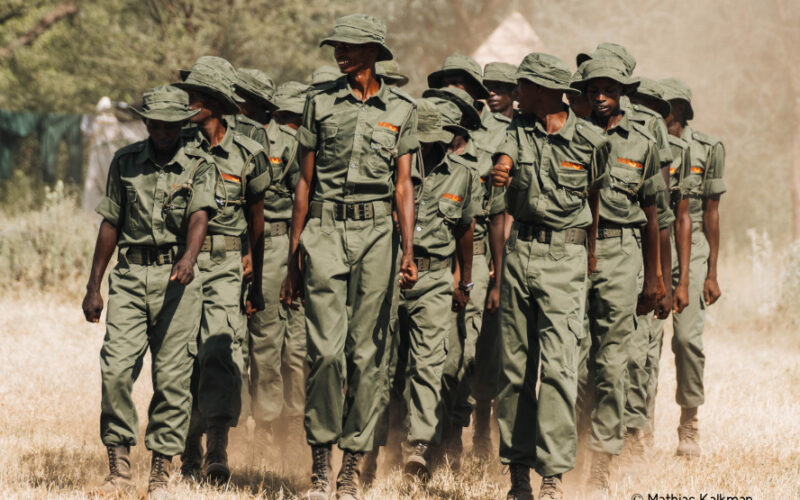CONSERVING COEXISTENCE
It is estimated that a significant proportion of Kenya’s wildlife is found outside of formally
protected areas, mainly on community land. In the light of national declines in wildlife,
community areas have become critical for biodiversity conservation across the country.
The Maasai have lived with wildlife for centuries through their traditional semi-nomadic
pastoral lifestyle, and what could be called a ‘culture of coexistence’. Given this, the
conserving coexistence programme puts communities and their livelihoods first, which can
subsequently create safe space for wildlife and people. Our work under this programme
includes supporting our regional network of community game scouts, helping prevent
and manage human-carnivore conflict through our Rebuilding the Pride programme, and
assisting communities to develop and manage their conservancies
Community Games Scouts
We currently support 117 community scouts
to help communities protect their natural
resources. Scouts patrol daily within community
lands to prevent environmental crimes, ranging
from poaching to illegal logging. They also act
as mediators in any human-wildlife incidents,
communicating with the KWS (Kenya Wildlife
Service), rescuing wounded animals, removing
wildlife snares and keeping people and their
livestock safe
Rebuilding the Pride
Our Rebuilding the Pride (RTP) programme
focuses on large carnivores, such as lions,
cheetahs, leopards, and hyenas. The purpose
of RTP is to monitor potentially harmful wildlife
species and then share information on their
movements with local livestock herders.
Part of this work is to assist the local herders
prepare the necessary paperwork in order to
seek compensation through the Kenya Wildlife
Service . For more on RTP’s work, visit their
Instagram or Facebook pages





